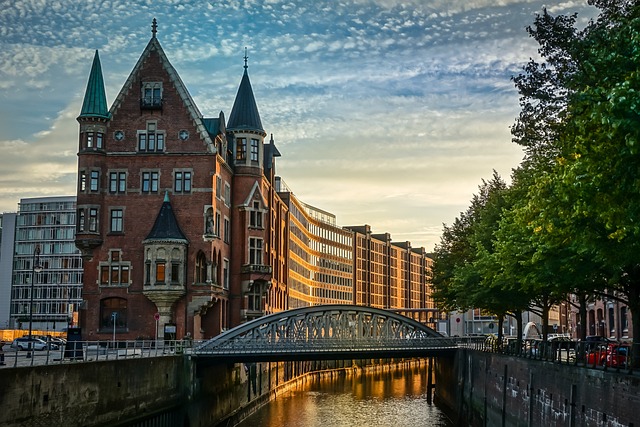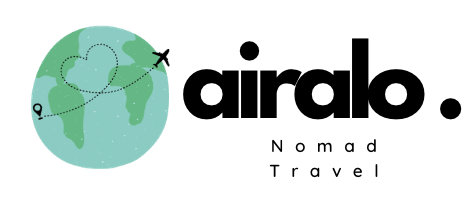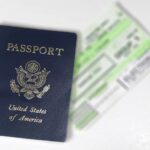
As remote working becomes an increasingly common way of working, Germany, a key economic and cultural center in Europe, offers a visa specifically designed for digital nomads. This visa enables remote workers to live in Germany and provide services to global companies or clients without having to work locally. This article will introduce in detail the application process, requirements and applicable groups for the German digital nomad visa, and help digital nomads who plan to go to Germany understand relevant information.
1. Overview of the German Digital Nomad Visa
Germany’s digital nomad visa is a visa designed for citizens of non-EU countries and is usually divided intoFreelancer visa (Freiberufler visa) and Self-Employment visa (Self-Employment visa). This type of visa is designed to support remote workers, freelancers and business owners who want to start their own business activities in Germany. Specifically, this type of visa has the following characteristics:
1.1 Applicable objects
Germany’s digital nomad visa is suitable for the following categories of people:
- remote worker: For example, professionals who work for foreign companies around the world and engage in programming, design, translation, consulting, etc. through the Internet.
- freelancer: Including but not limited to self-employed individuals such as artists, writers, designers, IT consultants, etc., who usually rely on their personal skills and experience to provide services to multiple clients.
- Entrepreneurs and small business owners: Foreign citizens who wish to start their own company or small business in Germany, whether online or offline.
1.2 Visa features
- Live and work legally: After obtaining a digital nomad visa, the holder can live in Germany and provide remote services to international clients or employers, or carry out his or her own business activities. No need to worry about working or living illegally.
- Visa validity period: The standard validity period of this visa isthree years, the holder can apply for renewal before the visa expires. Renewal is usually based on proof of income and work status. If the income is stable and meets the requirements of the German Immigration Service, the renewal application will generally be passed smoothly.
- flexibility: This visa has no restrictions on the industry or specific position of work, which means that as long as your job depends on the Internet and you can maintain a certain source of income, you can apply for this visa.
1.3 Applicant needs
In order to obtain a digital nomad visa in Germany, applicants need to meet the following conditions:
- stable source of income: Proof of income is required. Bank deposit records or customer contracts over the past few months are usually required to prove that the applicant can support his or her living expenses in Germany.
- health insurance: Applicants must hold valid health insurance during their stay in Germany. Applicants can choose local health insurance in Germany or choose international health insurance that meets the requirements.
- Legal residential address: Proof of legal address residing in Germany must be provided, usually a rental contract.
- Work contract or client testimonial: Provide documentation proving remote working or self-employed status, such as client contracts, freelance work agreements, etc.
1.4 Validity period and renewal
- Initial issuance: A digital nomad visa is usually granted on initial applicationValidity period of three years. During this three-year period, the visa holder can continue to work and live in Germany.
- Renewal process: Before the visa expires, the holder can apply for renewal. Renewals are typically based on income and tax status over the past few years, and require holders to demonstrate that their income and Social Security status have remained stable. Renewal should not be a big problem, provided that the relevant regulations of the Immigration Bureau are complied with.
1.5 Germany as a destination for digital nomads
Germany is a very suitable place in Europe for digital nomads to live and work. It has developed network infrastructure, good social welfare system, and rich cultural life. For many remote workers and freelancers, Germany not only offers a convenient working environment but also high-quality living conditions. Therefore, Germany’s digital nomad visa has become the first choice for more and more digital nomads from non-EU countries.
2. Applicable people
Germany’s digital nomad visa is tailor-made for remote workers, freelancers and entrepreneurs from the following non-EU countries. It is suitable for individuals who want to live in Germany and carry out non-local employment work. The specific applicable groups are as follows:
2.1 Remote workers
Applicable objects: Internet-dependent remote workers who work for foreign companies and do not contract with local German employers. Applicants in this category usually live in Germany but have a flexible physical work location and can work from home or take advantage of locations across Germany.shared office space。
Common occupations:
- project management staff: Collaborate with international teams through an online platform for project coordination and management.
- social media manager: Manage social media accounts for foreign brands or companies, publish content, interact and promote.
- Customer Support and Service Representative: Provide technical support and service solutions to global customers through online communication.
2.2 Freelancers
Applicable objects: A freelancer who works independently and is not dependent on a single employer, serving multiple clients. Such people usually work in skills-based jobs and receive commissions from clients internationally or from outside Germany, but the visa allows them to live in Germany.
Common occupations:
- designer(such as graphic design, UI/UX design): Design advertising, brand image or website interface for global customers or overseas companies, usually completing projects through online collaboration tools.
- Programmers and Developers: Engaged in software development, application development, website construction, etc., can write code remotely and conduct testing, and often provide software solutions to different customers.
- Translators and writers: Provide multi-language translation services or content creation for international clients, can accept new projects at any time, and provide flexible language and writing support.
- consultant: Consulting services such as business consulting, market analysis, career guidance, etc. communicate with customers and provide solutions through video conferencing and other methods.
2.3 Entrepreneurs and small business owners
Applicable objects: Interested in GermanyStart a small businessor foreign citizens carrying out self-employed activities. This group of people can not only build their own brands and businesses in Germany, but also enjoy unique support resources as entrepreneurs in Germany, such as start-up incubators, entrepreneurial funds and business consulting provided by Germany.
Applicable type:
- Online service platform creator: Hope to establish an e-commerce, education or service platform for global customers, such as online courses, consulting platform, etc.
- Product designers and sellers: Independently design and sell self-created products, such as handicrafts, e-commerce products, etc. The products can be shipped directly to global customers through local warehousing in Germany.
- IT and technology entrepreneurs: Hope to establish a technology company, provide innovative technology services or products, integrate with Germany’s technology ecosystem, and gain access to European market opportunities.
Overview of applicable groups
Whether they are remote workers, freelancers, or small entrepreneurs, Germany’s digital nomad visa can provide them with flexible work and residence options as long as they meet the application requirements.
3. Application conditions
To apply for a digital nomad visa in Germany, applicants need to meet a series of specific conditions to ensure that they can live and work legally and stably in Germany. The following are the main application conditions and related requirements:
3.1 Stable source of income
Applicants need to prove that they have sufficient financial ability to support their daily life in Germany. Details of the income requirements are as follows:
- minimum income standard: Generally speaking, applicants need to meet the minimum annual income standards set by the German Immigration Service. The specific amount will vary depending on the industry and the nature of the work. Generally speaking, the minimum annual income for freelancing and remote work is approximately30,000 to 40,000 eurosbetween.
- Income verification documents: Applicants need to provide bank statements, customer payment records or pay stubs from the past few months to prove the stability and legality of their income sources.
3.2 Valid health insurance
It is a mandatory requirement that applicants hold valid health insurance during their stay in Germany:
- insurance type: You can choose statutory health insurance provided by local health insurance companies in Germany (such as AOK, TK, etc.), or you can choose international health insurance that meets German standards.
- insurance coverage: Insurance should cover general medical services and emergencies, such as hospital bills, emergency room treatment, chronic disease care, etc.
- Insurance duration: It is recommended to ensure that the length of health insurance coverage is consistent with the length of time you plan to live in Germany, so that you are covered throughout the validity of your visa.
3.3 Proof of residence
Applicants are required to provide proof of legal residence in Germany, usually submitted during the application process:
- lease contract: The rental housing contract is the most common form of proof of residence. The contract must show the name, address and lease start date of the resident.
- Address registration: Once a residence has been found in Germany, the applicant needs to register and collect it at the local Resident Registration Office (Bürgeramt)Proof of address registration (Anmeldung). This document is one of the necessary materials for applying for a visa.
- Alternative options: If you have not rented a house for the time being, you can temporarily register at the address of a friend or family member, provided they provide written authorization and confirm that the applicant actually lives at that address.
3.4 Work contract or customer certificate
In order to prove that the applicant has a continuous source of employment or income, the following documents need to be submitted:
- contract documents: Work contracts, freelance agreements or project contracts signed with foreign employers, etc.
- Customer testimonials: Freelancers should provide proof of payment, business contracts, or letters of recommendation from clients to prove a stable client base.
- Proof of income: If there is income from multiple clients, bank statements and statements in recent months should be provided to ensure that the source of income complies with German self-employment visa requirements.
3.5 Language skills
Germany’s language requirements for digital nomad visas are relatively relaxed, but mastering German or English will bring convenience to life and work:
- Optional requirements: German or English proficiency is not a mandatory requirement when applying for a visa.
- Recommended language level: If you plan to live in Germany for a long time or integrate with the local community, it is recommended to learn basic German. German language skills can help communicate better in daily life, such as in supermarkets, banks, government departments, etc.
3.6 Educational and professional background
For digital nomads in certain professional fields (such as IT, engineering, design, etc.), Germany may require applicants to provide proof of academic or professional qualifications:
- Education certificate: In Germany, especially for high-tech fields (such as engineering, software development, etc.), applicants should provide relevant academic certificates.
- Professional experience: If you have working experience, you also need to provide a resume and letters of recommendation to prove that you have extensive work experience in the field you are applying for, which can improve the approval rate of your visa application.
4. Application process
Applying for a German digital nomad visa involves several key steps, each with detailed requirements and considerations. The following is the detailed application process and guidance:
4.1 Prepare materials
Before applying, make sure all necessary documents are complete and in compliance. The following details need to be noted during preparation:
- passport: Applicants must hold a passport valid for at least six months. Make sure your passport has enough blank pages for your visa.
- Proof of income: You need to provide sufficient proof of income to prove that you can be self-sufficient in Germany. Common documents include bank statements, client payment records, pay stubs or freelance contracts, etc.
- Proof of health insurance: Germany requires foreign residents to have valid health insurance. Applicants can choose German local insurance or international insurance that meets German standards. It is recommended to ensure that the insurance covers the entire period of residence when preparing application materials.
- Work contract or client testimonial: Prepare all documents supporting the applicant’s remote work or self-employment, including work contracts, project contracts, letters of recommendation, or client contact information.
- Proof of residential address: Applicants need to prepare proof of residential address in Germany, such as a rental contract or a letter of authorization from the landlord. It is best to have a registered residential address (Anmeldung) when submitting the application in order to pass quickly.
4.2 Submit application
The way to apply for a German digital nomad visa is usually through the German embassy or consulate in the country where you are located. You can also apply to the local immigration bureau after arriving in Germany:
- Find forms and requirements online: You can download the visa application form from the website of the German embassy or consulate abroad, view the latest list of materials required for the visa and the process of making an appointment for the application time.
- Submit documents: After making an appointment, bring all the materials and submit them in person to the embassy or consulate on the designated date. Some embassies also provide expedited processing services, but there is usually an additional fee.
- Fingerprinting and interview: When submitting an application, applicants may be required to have their fingerprints collected and undergo an interview to explain the nature of their work in Germany and their source of income to ensure that they meet visa requirements.
4.3 Waiting for approval
The processing time for a German digital nomad visa varies depending on the location of application and the circumstances of the case, but generally takes a few weeks to a few months. Applicants can prepare other related matters during this period:
- Trial time: Generally speaking, visa approval time for applicants in Europe is relatively fast, usually completed in about 4 to 8 weeks, while application times in other regions may be longer, especially during peak application periods.
- Follow up on application status: You can contact the German Consulate or Immigration Bureau regularly to learn about the progress of your application. Some areas also provide online inquiry functions.
- Supplementary documents: If the Immigration Bureau or the consulate requires further materials or documents, they must be submitted within the specified period to avoid affecting the visa processing progress.
4.4 Visa is approved and enters Germany
Once the visa is obtained, the applicant can enter Germany and start living and working. The following are the steps and instructions after entry:
- Entering Germany: Applicants holding a visa can travel to Germany according to the validity period and entry requirements on the visa.
- Address registration: After arriving in Germany, you need to register your address at the local resident registration office (Bürgeramt) as soon as possible and get the officialProof of residence registration (Anmeldung). This proof is essential for opening bank accounts and handling other matters in Germany.
- Tax Registration and Social Security Number Application: After working in Germany, you need to register a personal tax number (Steuernummer) and apply for a social security number (Sozialversicherungsnummer). These steps can usually be completed at the local tax bureau or social security department.
Things to note
- Language support: Although German or English proficiency is not mandatory during the application process, it will be more convenient to have basic German or English proficiency when communicating with the German Immigration Service and related agencies.
- Time management: It is recommended to apply for renewal in time within the validity period of the current visa, and ensure that health insurance and other protections continue to be effective, so as not to affect subsequent residency rights.
5. Visa duration and renewal
Digital nomad visas in Germany are usually initially issued with a validity period ofUp to three years, you can apply for renewal after expiration if you meet the conditions. Here are the specific details regarding visa duration and renewal:
5.1 Visa duration
- Initial issuance period: Most digital nomad visas are initially issued for one to three years, depending on the applicant’s job type, income stability and personal circumstances. In some cases, the initial issuance may be for one year and then extended to three years upon renewal.
- Visa conditions: During the initial visa period, the holder needs to maintain his self-employed or freelance status and continue to meet the conditions when applying (such as residential address, source of income, etc.). If the situation changes significantly, the Immigration Bureau must be notified to avoid affecting the validity of the visa.
5.2 Conditions for renewal
Before the visa expires, if the applicant plans to continue to live and work in Germany, he or she can apply for renewal. Generally, the following renewal requirements must be met:
- Stable income: Applicants need to continue to prove that they have sufficient income to support life in Germany, providing bank statements, income certificates or customer contracts for the last 6 to 12 months. The amount of income must meet Germany’s minimum self-employment income standards (usually an annual income of more than 30,000 euros).
- Valid health insurance: Health insurance must be valid for the entire visa period. At time of renewal, insurance policy and recent proof of payment will be required to ensure coverage for medical expenses and emergencies.
- Registration of place of residence and address: You need to provide your legal residential address in Germany, and you will usually be asked to continue to provide a rental contract or proof of address registration (Anmeldung). The immigration office may consider address stability to ensure that the applicant can live in Germany for a long time.
5.3 Renewal process
- Apply in advance: It is recommended to submit a renewal application to the Immigration Bureau 3 to 6 months before your visa expires to avoid affecting your residence status in Germany due to visa expiration.
- Renewal document submission: Applicants need to submit the renewal application form and related materials again, including passport, health insurance certificate, income certificate, address registration certificate, work contract and other documents. If there are changes in income or insurance, please provide detailed updates.
- review and wait: The visa renewal review usually takes several weeks to several months. During this period, you can continue to stay with the original visa, but you need to comply with the supplementary documents and interview requirements in a timely manner. Normally, renewal approval is smoother as long as the conditions are met.
5.4 Things to note when renewing your visa
- Legal Compliance: During residence in Germany, applicants need to comply with local laws and tax regulations. If there is a record of violations or failure to pay taxes as required, it may affect the approval result of the renewal.
- Long-term residence status after renewal: After holding a digital nomad visa for more than 5 years, you can apply for permanent residence in Germany (Niederlassungserlaubnis), but you need to meet higher German language requirements and residence stability requirements.
6. Taxation and social security
Tax and social security issues are relatively complex when living and working in Germany as a digital nomad. According to German tax law, if you live in Germany for more than 183 days, that is, six months, you will usually be considered a German citizen.tax resident, which means worldwide income needs to be declared under German tax law. At the same time, Germany also has corresponding requirements for social security projects such as health insurance and pension insurance.
6.1 Tax requirements
- Tax resident status determination: If you live or work in Germany continuously for more than 183 days, that is, six months, you will automatically become a tax resident. At this point, worldwide income needs to be reported regardless of the source of income, including freelance income paid by foreign clients.
- Personal income tax (Einkommensteuer): Germany’s personal income tax is a progressive tax rate, and the specific tax rate varies according to individual income. The higher the income, the higher the applicable tax rate, with the highest tax rate reaching 45%. Tax residents need to declare their income for the previous year before April 30 of each year. If they are late, they may face penalties.
- Value Added Tax (Mehrwertsteuer): If digital nomads are engaged in selling goods or providing services and issuing invoices, they need to understand the payment of VAT. Generally speaking, self-employed persons with an annual income of more than 22,000 euros need to register a VAT number (USt-IdNr.) and pay according to the German VAT rate (standard rate is 19%, some services are 7%).
- double taxation agreement: If a digital nomad has tax responsibilities in both Germany and the home country, it is necessary to check whether Germany has signed a double taxation agreement (DTA) with that country to avoid double tax payment. Typically, double taxation agreements allow taxes paid in Germany to be credited against home country taxes.
6.2 Social security
While living in Germany, digital nomads need to pay certain social security fees, which mainly cover two categories: health insurance and pension insurance.
- health insurance: Germany stipulates that all residents must purchase health insurance. Digital nomads typically have two health insurance options to choose from:
- Statutory health insurance (Gesetzliche Krankenversicherung, GKV): Applicable to most residents, fees are calculated based on income ratio. Digital nomads whose annual income is above the self-employment threshold can also apply to join GKV and enjoy public health insurance benefits.
- Private health insurance (Private Krankenversicherung, PKV): Suitable for digital nomads with higher annual income or special needs. Private insurance generally provides a wider range of medical services and higher reimbursement rates than public insurance, but it also costs more. No matter which insurance you choose, make sure it is valid for the entire duration of your visa.
- Pension insurance (Rentenversicherung): For digital nomads who want to stay in Germany for a long time, they can choose to voluntarily pay for German pension insurance. Although it is not compulsory for self-employed people to join Germany’s statutory pension insurance system, voluntary contributions to pension insurance will help them receive pensions after retirement. If you plan to live in Germany for a long time, it is recommended to consult the German pension insurance agency to learn about the specific payment methods and future benefits.
6.3 Tax filing and expense management
- tax consultant: German tax laws are complicated. It is recommended to hire a professional tax consultant (Steuerberater) to assist with declaration, especially when it involves complex situations such as foreign income, VAT processing and double taxation agreements. Tax consultants can not only provide detailed tax planning, but also help properly claim deductions and exemptions.
- Bank account and collections management: It is recommended to open a local bank account in Germany to better manage tax filings and social security payments. At the same time, some banks provide tax savings plans for self-employed individuals to help plan annual income reasonably.
6.4 Avoid fines and delays
- Regular declaration and payment: While living in Germany, you need to ensure that you declare taxes and social security fees on time. Failure to file or pay on time may result in late fees or penalties, especially for personal income tax and value-added tax.
- tax benefits and exemptions: German tax law allows you to enjoy some expense deductions under tax resident status, such as office expenses, vocational training expenses, health insurance, etc. Understanding and properly utilizing these deductions can help effectively save annual tax costs.
7. Life in Germany
As a digital nomad, Germany not only offers high-quality living conditions, but also has infrastructure suitable for remote working, an open and inclusive culture, and a diverse social environment, making it an ideal destination for many digital nomads and freelancers. Here are the nuts and bolts of life in Germany:
7.1 Quality of life and amenities
- quality of life: Germany is known for its high quality of life, with a good public health system, clean air and natural environment, and comprehensive infrastructure. In most cities, there are sufficient medical resources, parks, green spaces and fitness facilities are everywhere, and the living environment is comfortable and healthy.
- Law and order and security: Germany’s public security is good, traveling at night in major cities is relatively safe, and the public safety index is high. The German police system is highly efficient and responsive, giving residents a high level of security in their lives.
- Everyday conveniences: Supermarkets, pharmacies, gyms, restaurants and other daily facilities are common and of high quality. Large supermarket chains such asEdeka、period、LidlThey are located all over the country, with a variety of dining options, ranging from traditional German cuisine to international cuisine.
7.2 Digital infrastructure and working environment
- high speed internet: Germany’s Internet infrastructure is relatively complete, with high-speed networks covering urban areas and most suburbs. Most urban centers offer fiber optic or high-speed broadband services, with internet speeds sufficient for remote working needs. High-speed internet is especially important for digital nomads in certain industries, such as video creators or programmers.
- Public WiFi and mobile networks: Many cafes, libraries and public places provide free WiFi. Germany has high 4G coverage and 5G is being promoted, so network needs while traveling can also be met.
- shared office space: There are high-quality shared office spaces in major cities in Germany, such as Berlin’sWeWork、Mindspace、The Factoryetc. These places provide office equipment, conference rooms, Internet and other facilities, which are suitable for digital nomads to work. In addition, these spaces often host events where you can meet other freelancers and entrepreneurs.
7.3 Multicultural and social opportunities
- international city: Cities such as Berlin, Munich, Frankfurt and Hamburg are highly cosmopolitan and have unique living costs and community atmospheres. Berlin, for example, is popular among digital nomads for its creativity, open culture and affordable cost of living, while Munich is family-friendly due to its high quality of life, good security and abundant green spaces.
- Entrepreneurship and Digital Nomad Community: These cities have an active entrepreneurial ecosystem. Many technology companies, start-ups and entrepreneurial accelerators have settled in Germany, providing abundant business resources and development opportunities for freelancers and digital nomads. Many coworking spaces and startup cafes host regular networking events and lectures, making it easy for newcomers to integrate into the community.
- Cultural events and entertainment: Germany has a wide range of cultural events, ranging from music festivals and film festivals to art museum exhibitions. Every year, international events such as the Berlin Film Festival and the Munich Oktoberfest attract a large number of tourists and culture enthusiasts. Digital nomads can fully experience the cultural atmosphere of Germany. In addition, major cities offer a wealth of entertainment options including numerous art exhibitions, museums, and live concerts.
7.4 Transportation and travel convenience
- public transportation: Germany has a well-developed public transportation system, with efficient trains (such as ICE high-speed trains), subways (U-Bahn), light rail (S-Bahn) and bus systems. The transportation between cities is convenient and suitable for digital nomads who work and live in different cities. Buy a monthly or annual pass from Deutsche Bahn to get discounts on frequent travel.
- Shared travel services: Big cities generally provide sharing services such as electric scooters, bicycles, and cars. Various shared travel platforms in cities such as Berlin and Hamburg (such asTier、Lime, Car2Go) to facilitate daily travel, and the shared car rental programs provided by companies such as Munich Re and ShareNow are also widely used in daily life.
- international transportation hub: Germany has many international airports, such as Frankfurt Airport,Munich Airportetc., it is Europe’s air transportation hub and travel is convenient. As a transportation hub in central Europe, Germany can easily travel to and from surrounding countries, making it suitable for digital nomads who need to work frequently across borders.
7.5 Daily expenses and living costs in Germany
- cost of living: In Germany, the cost of living varies depending on the city. The cost of living in places such as Berlin and Cologne is relatively low, while cities such as Munich and Frankfurt are more expensive due to higher rents and high consumption levels. Generally speaking, the monthly living costs for a single digital nomad range from 1,500 to 2,500 euros, including rent, food, transportation and entertainment expenses.
- Rent and accommodation: The rental market is tight, especially in big cities, so it is recommended to arrange accommodation as early as possible. Rent prices vary by location and city, with Berlin being more affordable and Munich and Frankfurt being relatively expensive. Rental channels includeimmobilienscout24.de、wg-gesucht.deetc. to facilitate the search for suitable properties.
in conclusion
Germany’s digital nomad visa provides an ideal opportunity to live and work for global remote workers, self-employed people and entrepreneurs, especially for non-EU citizens who want to enjoy a high quality of life in Germany. Through a detailed application process and strict requirements, Germany has created an attractive environment for digital nomads, providing legal protection and promoting cross-border work and entrepreneurial activities. After meeting the income requirements, health insurance, and legal residence address, applicants can successfully obtain a visa and start living as a digital nomad in Germany.
Germany not only has good network infrastructure and social welfare system, but also enjoys rich cultural resources, making it an ideal destination for digital nomads and freelancers. So whether you’re looking to expand your career, enjoy new cultural experiences, or find a more productive work environment, Germany offers a variety of possibilities, making it a popular choice for digital nomads around the world.





